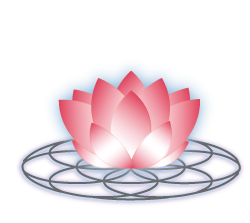There's quite a bit of hysteria going on with the coronavirus (COVID-19). The coronavirus is a virus that affects the upper respiratory tract (nose, throat, and lungs), and has similar symptomology to the common cold. Though it can be understandable why so many people are scared of it, it is important to inform yourself about the virus, and know how to prevent catching and spreading it.
As of March 7, 2020, COVID-19 has infected 105, 981 people, since the infections start in December 2019; with 59, 916 people who have recovered, and 3, 586 deaths. This means that there is a 3.4% fatality rate; therefore, a large number of people who have gotten infected are recovering and have recovered.
In Canada, there have been 28 confirmed cases in Ontario, 27 confirmed cases in British Columbia, 2 confirmed cases in Quebec, and specifically for Alberta (because I live in Alberta), there are 2 presumptive cases (meaning that they haven't been confirmed yet).
From Johns Hopkins CSSE
Origins
It originated from Wuhan, China, most likely due to a high concentration of people and the animal that originally had it, along with possibly cramped quarters. This generally means it's harder to keep the area clean, and contamination occurs, allowing the disease to start infecting humans. This disease did NOT start because of eating bat soup. A number of diseases that jump from animal to human occur this way.
How is COVID-19 spread?
The most common ways it spreads are:
respiratory droplets from the symptomatic person when they sneeze or cough
close contact (eg. touching or shaking hands)
touching something with the virus on it, then touching your face (aka nose, mouth, eyes) before washing your hands
This is why practicing proper hand-washing technique is important in preventing the spread of the virus.
Symptoms
The most common symptoms are:
From the CDC
Other symptoms include:
runny nose
headache
sore throat
If you have traveled or been in contact with someone who has been infected with COVID-19 within 2 meters for 15 minutes, and you start to experience these symptoms, self-quarantine yourself for 14 days, and if you start to develop these symptoms, contact your Public Health Authority. They will be able to further advise you on what you should do. It is important to self-quarantine yourself to decrease the chance of infecting other people. If during this time, you experience these symptoms and get tested negative for COVID-19, continue your self-quarantine until you are no longer exhibiting symptoms. This is because there is still a chance that you have COVID-19 (you may have been tested too early, before there was enough of the virus in your body to be tested positive), or you have the cold or flu - which you can still pass on. Below is a summary of the actions you can do based on your exposure level.
Based on the Government of Canada Public Health
UPDATE (March 13, 2020) - Everyone who is coming back to Canada from out of the country are advised to self-quarantine for 14 days (treat as high risk category)
Face Masks
Face masks are not necessary for people who are healthy, in regions where there aren’t a lot of cases of COVID-19. They should be reserved for those who are working with people who have COVID-19, or have COVID-19. The reason for this is because if the person infected with COVID-19 wears a mask, the mask can prevent them from spreading respiratory droplets that can get other people infected. Whereas, if healthy people wearing it, the amount of protection it is giving is less because it is just protecting one person, instead of everyone (Government of Canada Public Health - point 10). The video below from the WHO, summarizes some prevention things (washing your hands often), and about masks.
Travel
It is advised to avoid non-essential travel to China and avoid all travel to Hubei province. If you are traveling to China, to consult the Travel Health Notice for China for more information.
To find out if your travel destination is being affected, check out the Government of Canada's Travel Advice.
When returning from an area with COVID-19, refer to the chart above for action steps to take once you come back to Canada.
Treatment
Currently, there is no specific treatment for COVID-19, and the symptomatic person should focus on resting, eating food rich in nutrition, staying hydrated, and managing their symptoms (except for fever medication at the beginning, during the 14-day self-quarantine). The fatality rate of COVID-19 is 3.4%, so there is a very high chance that if you are affected, you will recover. However, while you are doing so, be considerate of other people, and do your best to decrease the risk of infecting others by self-quarantining, wearing a mask if you go out, cough and sneeze in a tissue (then throw it in the garbage) or your sleeve, and washing your hands.
Stigma
As a public service, this disease is not because of Asians, and just because someone is Asian, doesn’t mean that they carried it to your country. Even in this hysteria, please use logic. COVID-19 is not discriminatory, and can infect anyone, and diseases that are cross-species occur all over the world. The H1N1 was first identified in the United States, and no one is being discriminating to Americans. Before you start profiling someone, inform yourself.
Other resources
If you live in a dorm or place with tight quarters: https://www.canada.ca/en/public-health/services/diseases/2019-novel-coronavirus-infection/health-professionals/interim-guidance-cases-contacts.html
Concerned about your pet catching it: https://www.canada.ca/en/public-health/services/diseases/2019-novel-coronavirus-infection/frequently-asked-questions.html
More information on self-quarantining: https://www.canada.ca/en/public-health/services/diseases/2019-novel-coronavirus-infection/health-professionals/interim-guidance-cases-contacts.html
The CDC's FAQ about COVID-19: https://www.cdc.gov/coronavirus/2019-ncov/faq.html
Practice proper hygiene techniques,
~Dr. Charmagne





